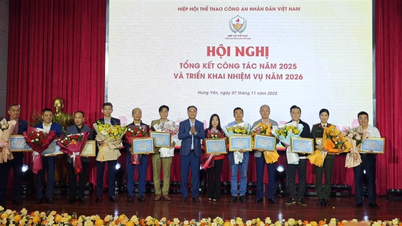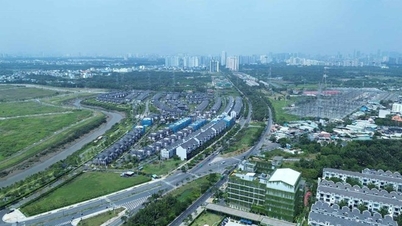
Increase family deduction level
According to the Government's recent submission to the National Assembly on the Law on Personal Income Tax (amended), the deduction for the taxpayer himself has been raised to 15.5 million VND/month, and for each dependent to 6.2 million VND/month. However, experts say that this deduction is only enough for the taxpayer's most basic expenses.
Mr. Nguyen Thai Son - former Head of the Personal Income Tax Department (Ho Chi Minh City Tax), said that the family deduction as proposed above is not satisfactory. In essence, the regulation on family deduction before calculating personal income tax for salaried employees is to ensure that individuals have essential expenses to meet basic personal survival needs such as food, accommodation, travel, study, medical treatment... Income after family deduction is subject to personal income tax.
Therefore, Mr. Nguyen Thai Son proposed a family deduction of 16.6 million VND/month for the employee and 6.6 million VND/month for dependents.
Similarly, Mr. Nguyen Duc Nghia - Deputy Director of the Legal Consulting Center of the Ho Chi Minh City Business Association (HUBA) said that the family deduction should be raised to 16.5 million VND/month for taxpayers and 6.6 million VND/month for dependents.
According to Mr. Nguyen Duc Nghia, Vietnam's consumer price index (CPI) includes 752 items, but in reality, people only use very few essential items in the CPI basket and these items have increased in price very strongly in the past 5 years. It is predicted that the increase in price indexes of basic items by the end of 2025 can reach nearly 50%, so it is necessary to increase the family deduction for taxpayers by 50%, as proposed above, to be reasonable.
Considering that the current deduction level is outdated compared to inflation and increasing living costs, Associate Professor, Dr. Tran Van Tung, Head of the Faculty of Finance and Commerce, Ho Chi Minh City University of Technology (HUTECH) proposed to increase the deduction level for taxpayers to 18 million VND/month. This figure is based on the calculation of basic spending levels (food, housing, transportation, healthcare, basic education ) in large cities, which have exceeded the threshold of 15 million VND/month.
In addition, the tax deduction for dependents should be increased to 7.5 million VND/month. At the same time, an automatic adjustment mechanism should be established, adding to the law a provision stipulating that when the consumer price index (CPI) fluctuates more than 5% compared to the time the law took effect or the most recent adjustment, the Government will submit to the National Assembly Standing Committee to automatically adjust the corresponding family deduction without having to wait for the entire law to be amended.
Increase human resource competition by tax deductions
In the context of Vietnam's deep integration into the world economy, competition for human resources, especially high-quality human resources, is increasingly fierce. Experts say that tax deductions are the "key" to creating attractiveness to attract high-quality human resources compared to other countries in the region.
According to the analysis of Associate Professor, Dr. Tran Van Tung, the current tax schedule has tax rates too close to each other at low and middle income levels, causing workers to quickly jump to higher tax rates when their salaries increase slightly. Comparing Southeast Asian countries, the maximum tax rate in Malaysia is 30%, the Philippines 35%, Thailand 35%. However, their maximum taxable income threshold is very high, Singapore is so developed but the tax rate is only 24%.
Associate Professor, Dr. Tran Van Tung also said that the Draft aims to reduce the number of tax rates from 7 to 5, which is reasonable and consistent with the world's simplification trend. However, it is necessary to widen the income gap at tax rates instead of applying the highest tax rate of 35% as present, it is necessary to reduce the maximum tax rate to 30% to increase competitiveness in attracting talents, foreign experts and high-quality workers compared to other countries in the region.
Commenting on the Draft Law on Personal Income Tax (amended), Dr. Tran Trung Kien, Faculty of Public Finance (Ho Chi Minh City University of Economics) said that the policy of exempting and reducing personal income tax on income from salaries and wages of scientists working in key national science and technology tasks stated in the draft is appropriate.
This policy contributes to reducing financial burdens, creating motivation for innovation and dedication; encouraging domestic scientific research activities; increasing regional and international competitiveness in attracting talent; and at the same time demonstrating the State's respect and worthy treatment of intellectuals. "This is not only a financial incentive but also a positive policy message to attract and retain high-quality human resources in the country and overseas Vietnamese returning to contribute to building the homeland" - Dr. Tran Trung Kien emphasized.
Highly appreciating the Draft Law on Personal Income Tax (amended) with deductions for health and education, but lawyer Vo Thanh Hung, former tax officer of Ho Chi Minh City, proposed that the family deduction level should be fair and not equal because the cost of living in urban areas like Ho Chi Minh City or Hanoi is very high compared to remote areas. Vietnam has six types of urban areas, the deduction level must also follow the urban classification level.
Source: https://nhandan.vn/giam-tru-thue-de-thu-hut-nhan-luc-chat-luong-cao-post921358.html




























![[Photo] Da Nang: Hundreds of people join hands to clean up a vital tourist route after storm No. 13](https://vphoto.vietnam.vn/thumb/1200x675/vietnam/resource/IMAGE/2025/11/07/1762491638903_image-3-1353-jpg.webp)










































































Comment (0)